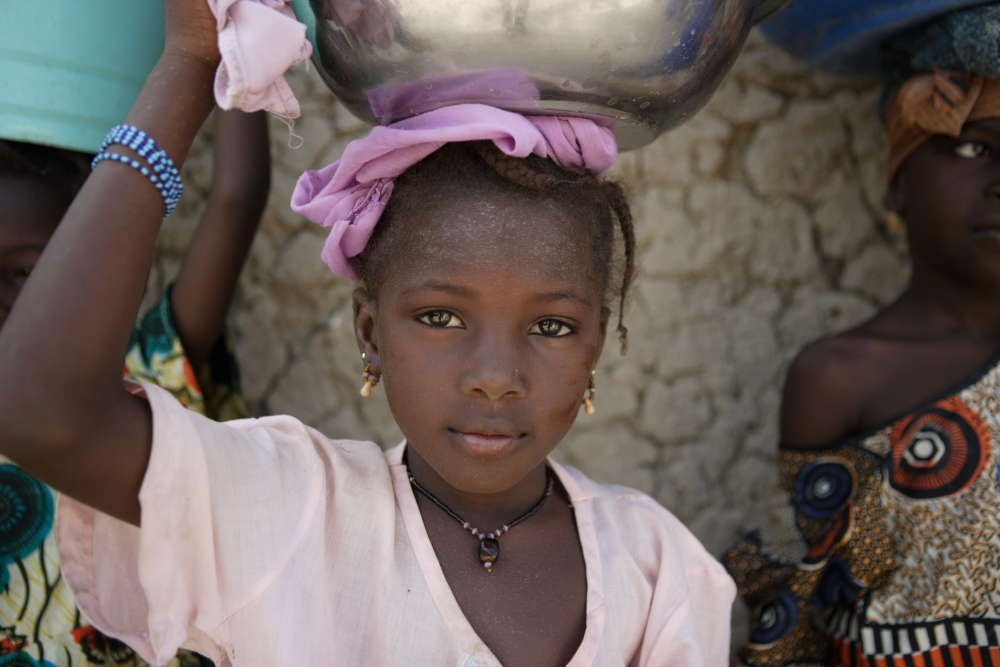Guest Blogger: The Trek for Water: How Scarcity Impacts Girls in Impoverished Regions

Julie Potyraj is the community manager for MPH@GW, the Master of Public Health program offered by the Milken Institute School of Public Health at the George Washington University.
Every morning before the sun rises, Elizabeth walks around her family’s sandy yard picking up the empty water containers from each hut. Though she is only 10 years old, she is responsible for collecting water for her family. In many parts of the world, including Elizabeth’s country Zambia, collecting water is a traditional and expected gender role reserved for women. Sometimes she will be accompanied by older siblings or female relatives, but often Elizabeth and her two younger sisters will make the trek to the water source alone. During the rainy season, water gathers in a small pond within close proximity to her family’s hut. However, during the dry season, the pond disappears. Elizabeth must walk farther and farther away from the safety of her family in search of water.
Elizabeth’s situation is not an uncommon reality. On average women and girls walk 3.7 miles each day to find water to bring back to their families. And water availability is only going to be more unpredictable in upcoming years. Due to climate change, Sub-Saharan Africa is particularly vulnerable to increased water insecurity. Clean and accessible water supplies will continue to be a challenge for both rural and urban areas. As weather patterns change across the region, higher temperatures and irregular rainfall mean that people like Elizabeth may not be able to rely on their typical water sources.
In countries like Zambia where it takes at least 30 minutes to access water, girls are less likely to attend school because household chores take precedence over education. For these girls, foregoing an education limits opportunities for their future and decreases their financial independence and autonomy.
In Sub-Saharan Africa alone, women spend 40 billion hours collecting water each year. That is precious time that could be spent going to school, generating income, or working to develop their communities.
Instead, girls and women spend their time traveling great distances carrying the heavy burden of water, while often risking their safety. Just like Elizabeth, many girls and women often travel in darkness to water sources so they can return before sunrise. During this time, they are more susceptible to violence and sexual assault. In Zambia and other countries, girls know there is a risk of rape every time they leave their homes to fetch water. But neglecting their water collecting duties, or waiting until a safer hour of the day, are not choices these women are allowed to make.
The world cannot afford to let this pattern continue. Women’s health is too valuable. Girls’ education is too important. And the time and income they forfeit is too costly. Water is not just a health and development issue, it’s a women’s equality issue. Girls like Elizabeth deserve clean water, and it is up to society to ensure the cost is not too high.
To learn more about global initiatives to provide water in poverty-stricken regions and protect women, visit the U.N., UNICEF, and WaterAid.





